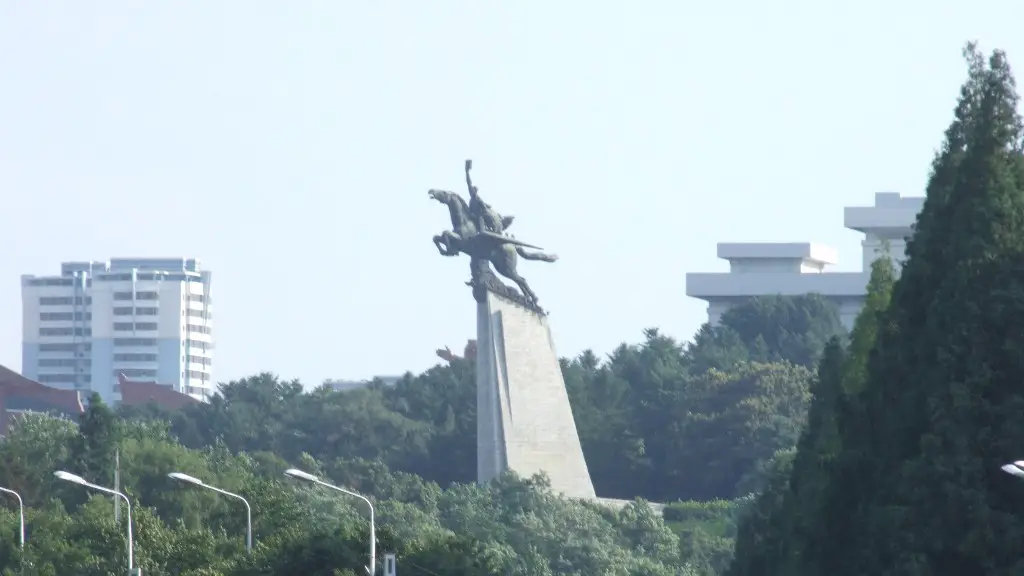Background of North Korean Internet Ban
North Korea has one of the most restrictive internet policies in the world. Since its implementation in the late 1990s, the internet has been nearly completely inaccessible there. In a country where internet access is heavily restricted, information about the ban is hard to come by. But the official reason for its implementation is the government’s fear of the public gaining access to information from outside of the country. The full extent of the ban is unclear, as some people in North Korea are granted access to a limited intranet system that offers only a fraction of the internet’s global capabilities.
Reasons for Ban
The ban on internet access is part of a larger policy of isolation and seclusion in North Korea. According to the regime, if citizens had access to the unrestricted internet, they could learn about the outside world and the regime’s human rights abuses. This could undermine its stability and challenge its control. North Korean leadership is aware of the power of the internet and social media, and fear it could potentially lead to regime change from within. According to experts, the ban is also used to prevent citizens from using the internet to organize political dissent and challenge the oppressive regime.
State Surveillance
The ban also makes it easier for the regime to conduct social control. It allows them to exercise detailed surveillance over citizens’ online activities, and provides a degree of physical insulation that makes it easier to contain information leaks. North Koreans must obtain government permission to use the internet, and are granted access only if they meet certain criteria set by the regime. Due to this, the state is able to monitor citizens’ activities and maintain a record of their searches and transactions.
Internet Censorship
Internet censorship is another key component of the ban. As part of this, the regime restricts access to websites that may contain material related to foreign news, liberal culture, democracy, and any other content seen as a threat to the state’s stability. A special commission established by the regime monitors the internet and enforces censorship on both the private and public levels.
Difficulties in Overcoming Ban
The North Korean government has invested a considerable amount of money and resources in order to ensure the success of their internet ban. It has been estimated that their yearly investment in internet control and censorship is around eight times the amount that would be necessary to connect everyone in the country to the internet. The regime also relies on Chinese technology to help enforce the ban, and any effort to break out of it must come from outside the country. North Koreans must use illicit methods to gain access, such as buying access codes from smugglers, and even then the connection is often slow and unreliable.
Effects on North Koreans
The internet ban poses a huge obstacle for North Koreans who wish to gain access to information from the outside world. It has had a detrimental effect on their education and access to global resources, as well as impacting the way in which people in the country communicate and interact with each other. Even with the ban in place, many North Koreans continue to find ways to gain access to the internet, showing the power of people’s desire for unfettered access to global information.
Impact on International Relations
The lack of internet access in North Korea has had an international impact. By preventing access to the rest of the world, the country is isolated not only from its enemies but also from its allies. International organizations have raised concerns about the effects of the ban, and the development of internet-related technology in North Korea could have implications for both regional security and international security.
United Nations Response
In response to the ban, the United Nations has called for North Korea to allow its citizens unrestricted access to the internet. In 2011, a special rapporteur to the UN Human Rights Council reported on the severe restrictions placed on the access to and use of the internet, as well as its adverse consequences on the right to freedom of opinion and expression.
Technological Strategies to Overcome Ban
Technology has played an integral role in the development of North Korean internet regulations, and it is seen as a potential means of bypassing the ban. The country has one of the most restrictive media environments and the internet ban has been the definitive factor in shaping the online and offline communication among North Koreans. That said, technological strategies have been used to overcome the ban in a variety of ways. North Koreans have used smugglers to trade in mobile phones, as well as techniques like satellite dishes, clandestine radio networks and USB drives to access information from outside the country.
Repressive Measure to Secure Ban
North Korea has also introduced or made use of repressive measures to secure the ban. Along with regular censorship, the regime has enlisted the help of citizens in keeping an eye out for those who try to evade the regulations. The regime has also taken steps to crack down on illegal broadcast channels, particularly in mobile phones, which has made the access to information from outside the country more difficult. The regime has also installed sophisticated surveillance programs in the country, which are used to monitor the population’s online activities and to severely punish those who offend the regime.
International Criticisms
The internet ban has been criticized by the international community, as it puts North Koreans at a disadvantage in terms of access to information and curtails their freedom of speech. These concerns have been echoed by members of the North Korean diaspora, who have called for a review of the ban and more transparent policies regarding its use. A number of human rights groups have spoken out against the regime in North Korea and its use of censorship, and have called for the country to be more open and to allow its citizens access to the internet without fear of reprisal.


